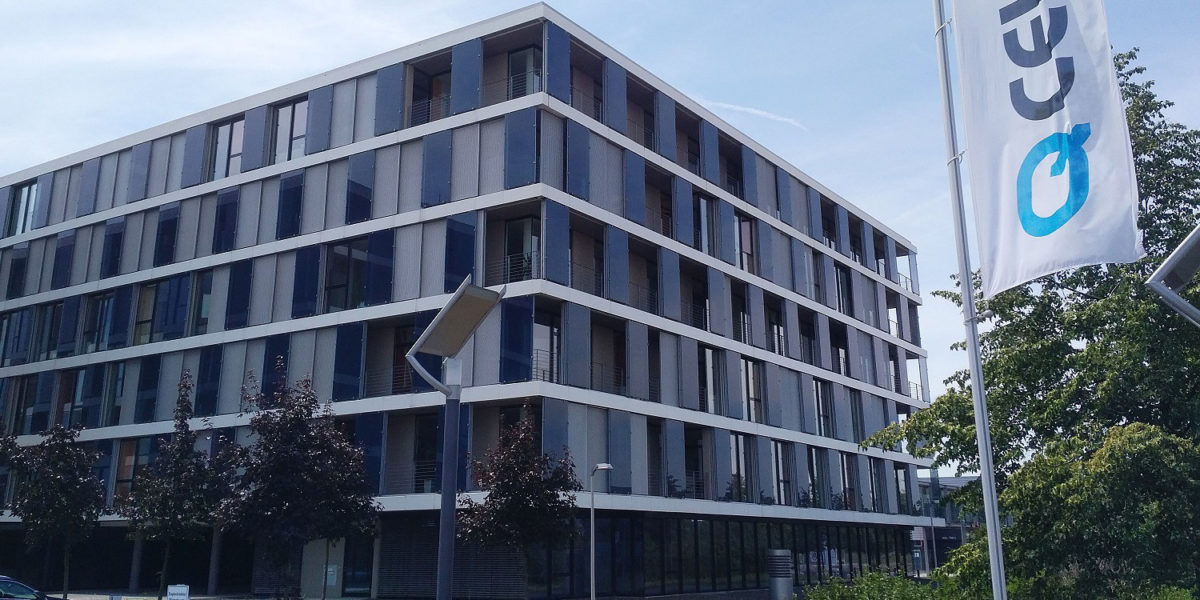From pv magazine Germany
South Korea-based photovoltaic manufacturer Hanwha Q Cells has announced in a press release that the Düsseldorf Higher Regional Court, in Germany, has upheld a previous decision taken by the Düsseldorf Regional Court to impose a coercive penalty payment against competitors Longi and REC Solar.
“Despite the Regional Court of Düsseldorf’s judgement of June 16, 2020, in which the ruling stated that the defendants were legally obliged to recall specific solar products that have been considered patent-infringing (and since January 30, 2019, were sold via … distribution channels with respect to commercial customers in Germany), Longi and REC – the Higher Regional Court ruled – failed to fully meet the requirements of the recall obligation,” the Korean company said. “Hence, the regional court’s decision to impose each company … pay a penalty for this failure was justified.”
The amount of penalty payment remains unclear.
The patent dispute between the photovoltaic manufacturers dates back to spring 2019. In March 2019, Hanwha Q-Cells filed a patent infringement lawsuit in both Germany and the United States, and shortly afterward in Australia, against Longi, REC and a third defendent, JinkoSolar. According to the company, its three competitors have illegally used its patented technology in their products. In June 2020, the Regional Court of Düsseldorf, in Germany, ruled in favor of Hanwha Q-Cells in the first instance. REC and Longi Solar appealed against the decision, whereupon Hanwha Q-Cells initiated the preliminary enforcement of the decision. In Hanwha Q-Cells' view, Longi Solar and REC, subsequently, did not take sufficient measures to comply with the court-ordered recall obligation, which is why Hanwha applied for a fine.
“The court emphasized in its decision that the debtor of a recall obligation – both Longi and REC – have to make a serious request to their commercial customers to voluntarily return the infringing product,” Hanwha Q Cells went on to say. “If either Longi or REC, in their recall requests, imply that compliance with the recall request is at the discretion of the customer, the debtors have to clearly inform their customers that they are at risk of being directly held responsible by the patent owner to meet the requirements for the recall obligation.”
The judges also ruled that Longi Solar and REC had to submit copies of all letters sent, or a list of recipients, to Hanwha Q-Cells in order to verify compliance with the recall obligation.
The patent dispute between the manufacturers has, meanwhile, also reached the Netherlands. According to information from Hanwha Q-Cells, a court there imposed upon Longi Netherlands Trading B.V. a requirement to refrain from any activity that constitutes patent infringement in the countries in which Hanwha Solutions Corporation is a registered patent holder. That legal dispute, by which Hanwha Q-Cells wants to prevent the distribution of patent-infringing solar modules in European third-party countries, has been swelling since the summer of 2021. At that time, a court in Rotterdam ordered the seizure of a delivery of Longi solar modules. According to the Chinese photovoltaic manufacturer, that seizure was lifted shortly afterwards.
pv magazine asked Longi Solar and REC for a statement on the decision of the Düsseldorf Higher Regional Court. We will add this as soon as we have it.
This content is protected by copyright and may not be reused. If you want to cooperate with us and would like to reuse some of our content, please contact: editors@pv-magazine.com.




1 comment
By submitting this form you agree to pv magazine using your data for the purposes of publishing your comment.
Your personal data will only be disclosed or otherwise transmitted to third parties for the purposes of spam filtering or if this is necessary for technical maintenance of the website. Any other transfer to third parties will not take place unless this is justified on the basis of applicable data protection regulations or if pv magazine is legally obliged to do so.
You may revoke this consent at any time with effect for the future, in which case your personal data will be deleted immediately. Otherwise, your data will be deleted if pv magazine has processed your request or the purpose of data storage is fulfilled.
Further information on data privacy can be found in our Data Protection Policy.